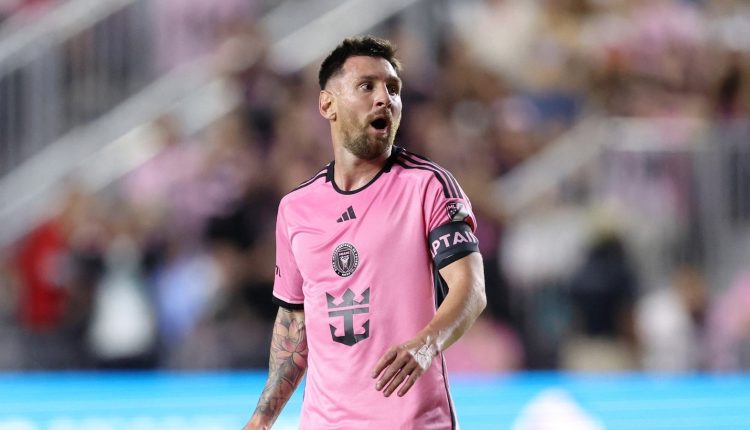Lionel Messi has finally broken his silence on the storm caused by him not playing a friendly match for his club Inter Miami in Hong Kong. The Argentina football great’s non-appearance on February 4 match in Hong Kong led to widespread anger among the fans present at the stadium, and this spread out to the special administrative region’s politicians and to the larger Chinese state media when Messi came off the bench in a friendly just three days later in Tokyo, Japan.
The fallout has rumbled along with the cities of Hangzhou and Beijing they will not host Argentina games scheduled for March. Messi has now finally addressed those angered by his absence in Hong Kong in a video posted on one of China’s largest social media platforms. “I’ve read and heard many things that have been said after the game in Hong Kong. I wanted to record this video and give you the true version so nobody has to continue reading false stories,” Messi said in a video posted on Weibo.
“I’ve heard people say that I didn’t want to play for political reasons and many other reasons that are totally untrue. Had that been the case I wouldn’t have even travelled to Japan or visited China, as I have many times. Since the start of my career I’ve had a very close and special relationship with China.”
Messi has been recovering from an injury during the game in Hong Kong. He was present but never took the field. He reiterated that the only reason that he didn’t play was the injury. “As I said in the press conference, I had an inflamed adductor and I couldn’t play in the first game in Saudi Arabia, which is when I felt it. In the second game I tried to play for a bit, but it got worse. Then on the day before the game (in Hong Kong) I tried to train and made an effort for all those who had come to watch training,” Messi says in the video.
“It felt a bit better a few days later and that’s why I played for a bit in Japan to prepare fitness wise for everything to come because I needed to play and get back up to speed,” he said.
Messi and Inter Miami had said he had the groin injury, but the grievances spread to mainland China after he played for 30 minutes in Tokyo against Vissel Kobe days later. After the Tokyo game, China’s state-run newspaper, the Global Times, even published an editorial highlighting a “theory” without evidence that suggested Messi’s actions had “political motives” and that “external forces” wished to embarrass Hong Kong.



